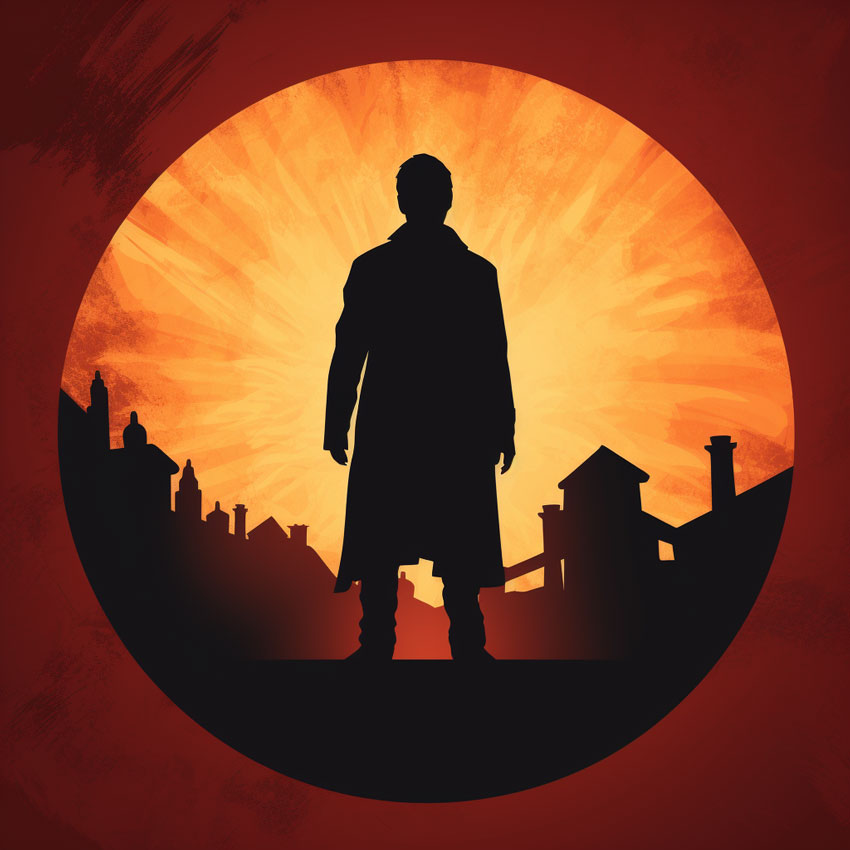“I do the devil’s work.”
Motto of House von Glauer
After falling to a vampiric curse in his early twenties,
Count Rhodar—the last Lord of Glauer—ruled his tiny,
heavily forested mountainous county in eastern Rhöl for
three hundred years. There were worse masters, the
people said. After all, Rhodar took his pact with the people
and the land seriously. He aggressively defended the
villages in his demesne against constant incursions from
rival counts and barons. He believed his power waxed and
waned with the prosperity of the people and the vitality of
the land.
Each new moon, when the Red Tax came due, the count
would visit a young candidate, then emerge with renewed
vitality. Across the land, folk feared their Dragon Count,
but the witches of the wood wove a prophesy: “the land’s
darkest hour shall be the redemption of House von
Glauer.”
Eventually, the conquering force of Emperor Gaius VIII
came for Rhodar—not because he was a vampire, but
because the empire wanted his land and people. Count von
Glauer was staked, and his body burned to ash in the sun.
The emperor kept the Rod of Count Rhodar von Glauer as
a trophy, and with this symbol of authority, the emperor
sealed his claim to the land.
Under new rule, Rhodar’s people lament the absence of
their lord, recalling the time before the coming of the
empire as a golden age. But the witches’ whispers can still
be heard. For as long as the people of Glauer persist, they
continue believing their Dragon Count will return in their
darkest hour to deliver them from tyranny.
Motto of House von Glauer
After falling to a vampiric curse in his early twenties,
Count Rhodar—the last Lord of Glauer—ruled his tiny,
heavily forested mountainous county in eastern Rhöl for
three hundred years. There were worse masters, the
people said. After all, Rhodar took his pact with the people
and the land seriously. He aggressively defended the
villages in his demesne against constant incursions from
rival counts and barons. He believed his power waxed and
waned with the prosperity of the people and the vitality of
the land.
Each new moon, when the Red Tax came due, the count
would visit a young candidate, then emerge with renewed
vitality. Across the land, folk feared their Dragon Count,
but the witches of the wood wove a prophesy: “the land’s
darkest hour shall be the redemption of House von
Glauer.”
Eventually, the conquering force of Emperor Gaius VIII
came for Rhodar—not because he was a vampire, but
because the empire wanted his land and people. Count von
Glauer was staked, and his body burned to ash in the sun.
The emperor kept the Rod of Count Rhodar von Glauer as
a trophy, and with this symbol of authority, the emperor
sealed his claim to the land.
Under new rule, Rhodar’s people lament the absence of
their lord, recalling the time before the coming of the
empire as a golden age. But the witches’ whispers can still
be heard. For as long as the people of Glauer persist, they
continue believing their Dragon Count will return in their
darkest hour to deliver them from tyranny.








Social